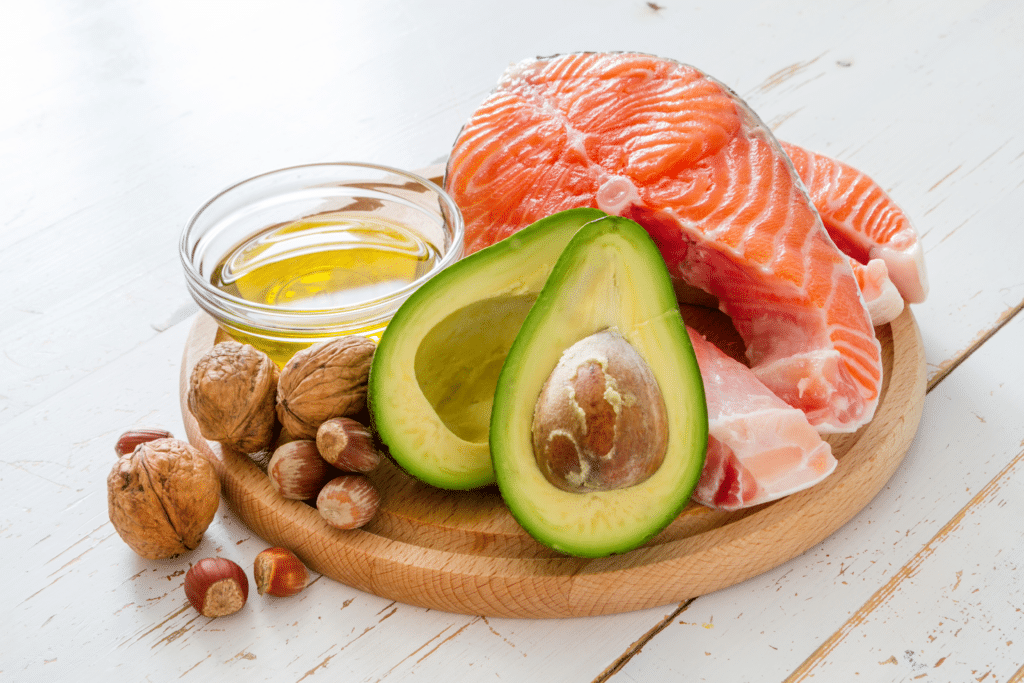Continuing Education for the Modern Nutrition Coach
The nutrition field is evolving faster than ever. In just the past few years, research has reshaped how we view carbohydrates, dietary fat, gut health, and even alcohol and wellness. Clients are asking more informed questions, trends come and go in the blink of an eye, and wellness professionals must stay ahead of the curve to remain credible and effective.
Continuing education is not optional. It’s the lifeline that keeps your practice current, your strategies evidence-based, and your impact meaningful. For 2025, AFPA’s newest and most popular continuing education courses tackle the very topics dominating client conversations and the wellness headlines.
From demystifying dietary fats to exploring the science of intermittent fasting, each course offers a deep dive into relevant knowledge you can immediately put into practice. Whether you want to help clients navigate menopause with nutrition, foster a positive mindset around food, or separate fad diets from proven approaches, these CE options are designed to expand your expertise and your confidence.
Let’s explore the best continuing education courses for nutrition coaches in 2025 and why these topics matter now more than ever.

For many clients, alcohol isn’t just a beverage. It’s a habit, a social ritual, or even a coping mechanism. As a nutrition coach, you’re likely to field questions about the effects of alcohol on health, from its calorie content to its impact on sleep, mood, and long-term wellness.
This course takes a holistic view, looking beyond the obvious negative effects on health to consider how alcohol fits into cultural, emotional, and social contexts. You’ll gain insights into how the body metabolizes alcohol, what happens to brain chemistry, and the ripple effects on energy, digestion, hormonal balance, and mental well-being.
By learning strategies for mindful consumption, and alternatives that still foster social connection, you can better support clients who want to enjoy life while prioritizing health. The course also provides tools to help clients reassess their relationship with alcohol without resorting to an all-or-nothing approach.
For 2025, this topic is particularly timely. Post-pandemic drinking trends, increased awareness of alcohol’s role in chronic disease risk, and the rise of sober-curious movements mean your clients will value guidance that’s both realistic and compassionate.
Explore the Alcohol and Holistic Health CE course.

Many clients come to nutrition coaching with years, sometimes decades, of diet rules, food guilt, and a fear of “falling off the wagon.” This course flips that script entirely. Instead of starting with restriction, Nutrition by Addition focuses on how to foster a positive mindset around eating.
The concept is simple but powerful: help clients discover how to make sustainable dietary changes by focusing on what they can add (more fiber-rich vegetables, more antioxidant-packed berries, more heart-healthy fats) rather than what they have to give up. This reframing not only makes healthy eating feel less punishing, but it also builds lasting behavior change.
You’ll explore nutrient density, the psychology of mindset shifts, and mindful eating strategies that reduce overeating while increasing satisfaction. Clients who once obsessed over avoiding “bad” foods often find a sense of freedom in this approach, which ultimately leads to better adherence and overall well-being.
Explore the Nutrition by Addition: Creating a Positive Nutrition Mindset for Sustainable Change CE course.

Around 1.1 billion people worldwide are in perimenopause or postmenopausal. That’s a massive segment of the population that could use guidance on nutrition during menopause, a topic that has historically been underserved.
This course equips you with actionable strategies to navigate menopause with your clients. You’ll explore how shifting hormones affect metabolism, weight distribution, bone health, cardiovascular risk, and even brain function. From creating a diet rich in phytoestrogens and calcium to managing hot flashes through balanced eating patterns, you’ll leave with practical, evidence-based tools.
This training emphasizes the broader lifestyle picture. You’ll learn how sleep, physical activity, and stress management interact with nutrition to create a more holistic wellness plan. Clients will appreciate that you’re not just giving them a meal plan and are helping them thrive through one of life’s major transitions.
With more women openly discussing menopause in the media and the workplace, coaches who can confidently address this stage of life will stand out as trusted resources.
Explore the Navigating Menopause with Nutrition CE course.

Few nutrition topics spark as much confusion as dietary fat. For decades, fat was villainized, only to be later celebrated, sometimes without nuance. Clients may ask, “What is dietary fat?” or “Why are dietary fats important?” and expect you to sort through the conflicting headlines.
This course demystifies fats by breaking down the different types (saturated, unsaturated, and trans) and their unique roles in the body. You’ll learn which foods with dietary fat offer protective benefits (think omega-3-rich salmon or avocado) and which should be limited. You’ll also address common myths, such as the idea that all fat leads to weight gain.
Understanding the benefits of dietary fat is critical for guiding clients toward balanced eating patterns that support hormone production, brain health, and long-term satiety. With practical strategies for incorporating healthy fats into meals, you’ll help clients fuel better, recover faster, and feel more satisfied with their diets.
In 2025, where misinformation spreads quickly on social media, having a grounded, evidence-based perspective on essential dietary fat can help you stand out as a credible educator.
Explore the Dietary Fats Explained: Important, Essential, & Misunderstood CE course.

Few nutrition strategies have exploded in popularity like intermittent fasting. Clients might come to you with questions like, “What is intermittent fasting?” or “What’s the best intermittent fasting schedule?” This course cuts through the hype with a scientific deep dive into fasting’s metabolic, cognitive, and performance effects.
You’ll explore multiple approaches, from time-restricted eating to alternate-day fasting, and examine the benefits of intermittent fasting beyond weight loss, including improved insulin sensitivity and possible brain health support. Equally important, you’ll learn how to identify when fasting might not be appropriate, ensuring your recommendations are safe and individualized.
The course also provides intermittent fasting strategies for integrating fasting into real-world lifestyles without creating nutrient gaps or energy slumps. As research continues to refine our understanding of fasting, clients will look for professionals who can translate emerging science into practical, personalized guidance.
Explore the Intermittent Fasting: Science, Benefits, and Practical Strategies for Health Professionals CE course.

Gut health has moved from niche interest to mainstream wellness priority, and with good reason. The gut microbiome influences digestion, immune function, and even mood. This course focuses on probiotic foods and prebiotic foods, what they are, how they work, and why they matter.
You’ll discover what foods have probiotics (like yogurt, kefir, and kimchi) and foods with prebiotics (such as garlic, onions, and bananas) and learn how these nutrients interact to promote a healthy microbiota. The course also explores the fascinating microbiota-gut-brain axis, which links digestive health to cognitive and emotional well-being.
Armed with this knowledge, you can help clients incorporate probiotic and prebiotic foods into their diets in ways that suit their tastes, budgets, and cultural preferences. As interest in mental health, digestion, and immunity continues to grow, gut health expertise will remain one of the most marketable skills for nutrition coaches.
Explore the Probiotic and Prebiotic Foods: Nutrition, Gut Health, and the Brain CE course.

Carbohydrates may be the most misunderstood macronutrient. Some clients fear them; others overconsume refined sources. This course gives you a comprehensive guide to carbohydrate needs for performance, recovery, and overall health.
You’ll learn to distinguish between complex and refined carbs, understand daily intake ranges, and match carbohydrate strategies to different training phases. With this knowledge, you can help clients use carbs strategically, shifting the conversation from restriction to optimal fueling.
Explore The Ultimate Guide to Carbohydrates for Fitness Professionals CE course.

The diet landscape is crowded with bold claims and conflicting advice. This course helps you separate fad diets from approaches backed by solid science. You’ll explore the paleo diet, the keto diet, and the Mediterranean diet, along with other popular eating patterns, evaluating each against current research.
Beyond definitions, the course focuses on evidence-based diet recommendations, giving you a framework for assessing any new diet trend. This skill is invaluable in 2025, where clients are constantly exposed to new protocols via social media and want an informed perspective before making changes.
Explore the Fad or Evidence-Based Diet? Paleo, Keto, Mediterranean, and More CE course.
Why These CE Courses Matter for Nutrition Coaches in 2025
What ties these eight courses together is their immediate relevance. They address the questions clients are already asking, the trends dominating health conversations, and the areas where misinformation runs rampant.
By investing in continuing education, you’re not just meeting your CE credit requirements, you’re also future-proofing your practice. You’re ensuring that when a client asks about the latest fasting study, a gut health supplement, or a menopause nutrition strategy, you can respond with confidence and clarity.
Each course equips you with:
- Evidence-based knowledge grounded in current research
- Practical application strategies you can use immediately with clients
- Credibility and trust that set you apart from less-qualified voices in the wellness space
Transform Your Coaching Practice
Nutrition coaching is about more than macros and meal plans. It’s about helping people navigate the complex intersection of science, lifestyle, and personal goals. By choosing CE courses that address emerging topics like alcohol and wellness, gut health, and evidence-based diet analysis, you position yourself as a go-to resource in a crowded marketplace.
Whether you’re drawn to the science of dietary fat benefits, the practical application of intermittent fasting strategies, or the mindset-shifting potential of nutrition by addition, these AFPA continuing education courses will keep your knowledge sharp and your coaching impactful.
Explore the full lineup, choose the topics that resonate most with your client base, and make 2025 the year you expand both your skills and your influence.
Learn more and start your next AFPA continuing education course today.
